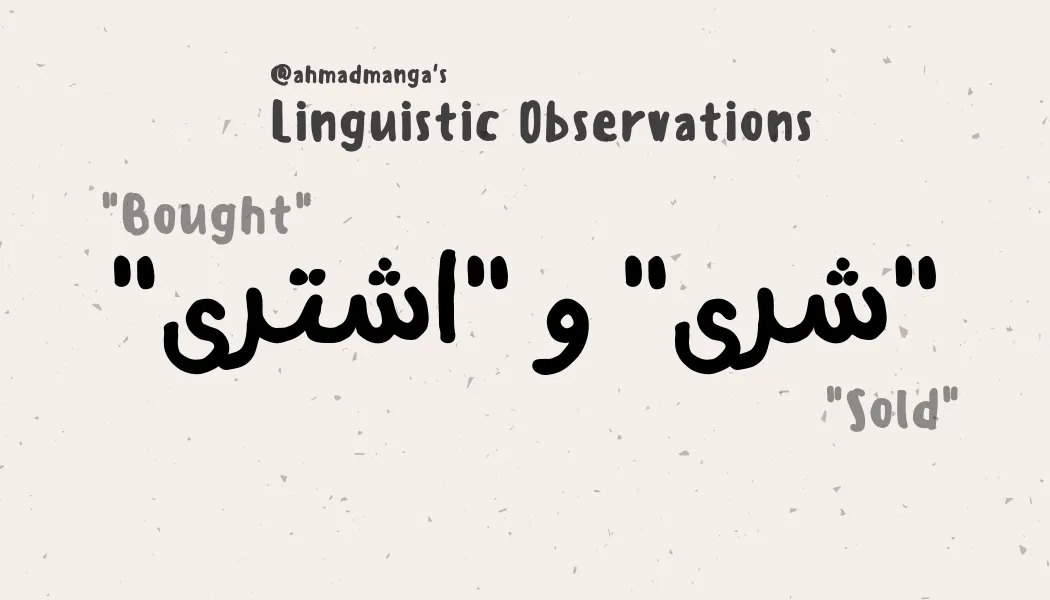Tl;dr: The Arabic word for "Sell" is often used for the opposite of its real meaning in most Arabic Dialects.

In Libya and most Arabic countries, the word we use for "Sell" is بيع" and from that root, we have "باع" for "Sold" and "يبيع" for "(someone is) Selling."
The word we use for "Buy" is "شراء" and from that root, comes the words "شرى" for Bought, "يشري" for "(someone is) Buying."
The second set of words, however, is all words that originally referred to selling not buying. The word "شراء" means "Sell/Selling" in Classic Arabic & supposedly Modern Standard Arabic too!
I say supposedly because the misconception is so strong that Google Translate also follows the current majority use of the word.

I think the main reason for that because the true word for buying "اشتراء" (which is still in use today) comes from the same root as "شراء," and it's harder to say. I imagine that people over the years started to shorten it. Since there's already the word "بيع" for selling, people easily understood from context, but now the original meaning has long faded away.
You'll only find the word "شراء" used to refer to Selling instead of Buying in historical text or in Qur'an, but the fact that the word is currently used for its opposite meaning has led to a lot of confusion. (I know I've been confused for a long time before someone explained it to me.)
We don't use the word "اشترى" in Libyan Arabic, but we do use it when we speak to Arabs from other countries. Since most Arabic countries use the word "شرى" for the same meaning in their local tongue, no one considers this distinction between using to refer to buying or selling an issue.
What do you think?
I don't know if this is a problem. There's a trend in all languages for changing things to make them easier over time. (Think of English or your own language and how it compares to 100 or 200 years ago.) Though, the fact that a word can easily be used for its opposite meaning can lead to a lot of confusion when researching/reading about the history...
- This article is also on Read.cash. Image made with Canva.
